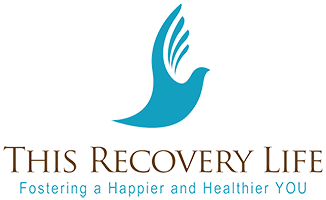In today’s climate of increased substance use and accidental substance related deaths, the Recovery field is rapidly growing. Many organizations across the country are taking action to increase capacity so that these and all related issues may be addressed. Massachusetts is one of the states that is leading the way as they implement peer services across the continuum of care. From the emergency room to detox, from the residential program to outpatient and beyond, the implementation of Recovery Coaching is becoming increasingly common and in demand.
The success of the recovery coach is subject to the level of support and guidance the coach receives. While coaches work with individuals seeking to engage in, achieve and/or maintain their recovery, there are a host of unmet challenges that are to be uncovered and acknowledged. In order to properly support a recoveree, it behooves the recovery coach to be participating in peer supervision. This collaboration directly benefits the recoveree as an alternate perspective can be instrumental both in supporting and maintaining an individual’s recovery as well as safety. Recovery coaches often need such indispensable perspectives in order to provide appropriate as well as ethical support to the recoveree.
Recovery is a non-linear process. Individuals in early recovery often uncover a multitude of challenges that they didn’t even know were there. Continuous engagement, re-positioning, and a strengths based focus is key to their recovery. This is where peer supervision becomes an invaluable relationship in supporting the recovery process.
I would recommend Paul’s Supervision and Coaching to anyone who wants to truly have a recovery orientation to their human service work. – Sargeant Sarko Gergerian, Winthrop, MA
Individually — Recovery Coach Supervision can:
• guide you in creating an appropriate support structure for yourself and your recoverees that best meets your personal values and style
• provide guidance to successfully support the recovery process in a healthy fashion including the engagement of recoverees, creation of boundaries, addressing crisis, maintaining a strengths based approach, transitioning through the stages of change, confidentiality, role-clarity and self-care
• oversee the recoveree’s progress
• increase your capacities as a coach
• further advance recovery capital for you as well as your recoveree
• create reassurance of the work you’re doing and the mindset behind it
• guide you in the collaboration with your recoverees, your agency as well as other professionals, agencies and people in the community
• encourage you in fostering your desired work / life balance
• advocate for you with your agency as well as other agencies, professionals and people in the community
• facilitate and guide you in the state certification of your Certified Addictions Recovery Coach Credential
Organizationally — Recovery Coach Supervision can:
• provide Peer Supervision for recovery coaches where a peer model does not exist within the organization’s scope of practice
• assist in the proper matching of coach and recoveree
• create supportive structures for the coaches to work within
• guide coaches in working within provided structures
• advocate for you with coaches, other agencies as well as the community
• effectively implement and oversee peer recovery coaches in your organization
• train appropriate individuals in your organization to become and work as peer recovery coaches
• support your organization in creating a culture of recovery
• provide invaluable support to your participants while bringing unprecedented value to your organization
pAUL aLVES has been working as a Peer Recovery Coach since 2011. He was one of 15 individuals hand-picked by the Massachusetts Bureau of Substance Abuse Services (BSAS) to participate in the pilot program for Recovery Coach Supervision developed by Meaningful Trainings and BSAS. He has also been trained by The Resource Training Center, The Office of Alcoholism and Substance Abuse Services (OASAS), and the Office of Mental Health all in New York City as well as The Connecticut Community for Addiction Recovery (CCAR). Curriculum Vitae is available upon request.
In order to explore the possibilities of how Recovery Coaching Supervision can benefit you, your agency, and, most importantly, your Recoverees, call pAUL aLVES at 860-373-6738 or 413-272-8520.
Love Life Today,
THiS ReCoVeRY LiFE


Recent Comments